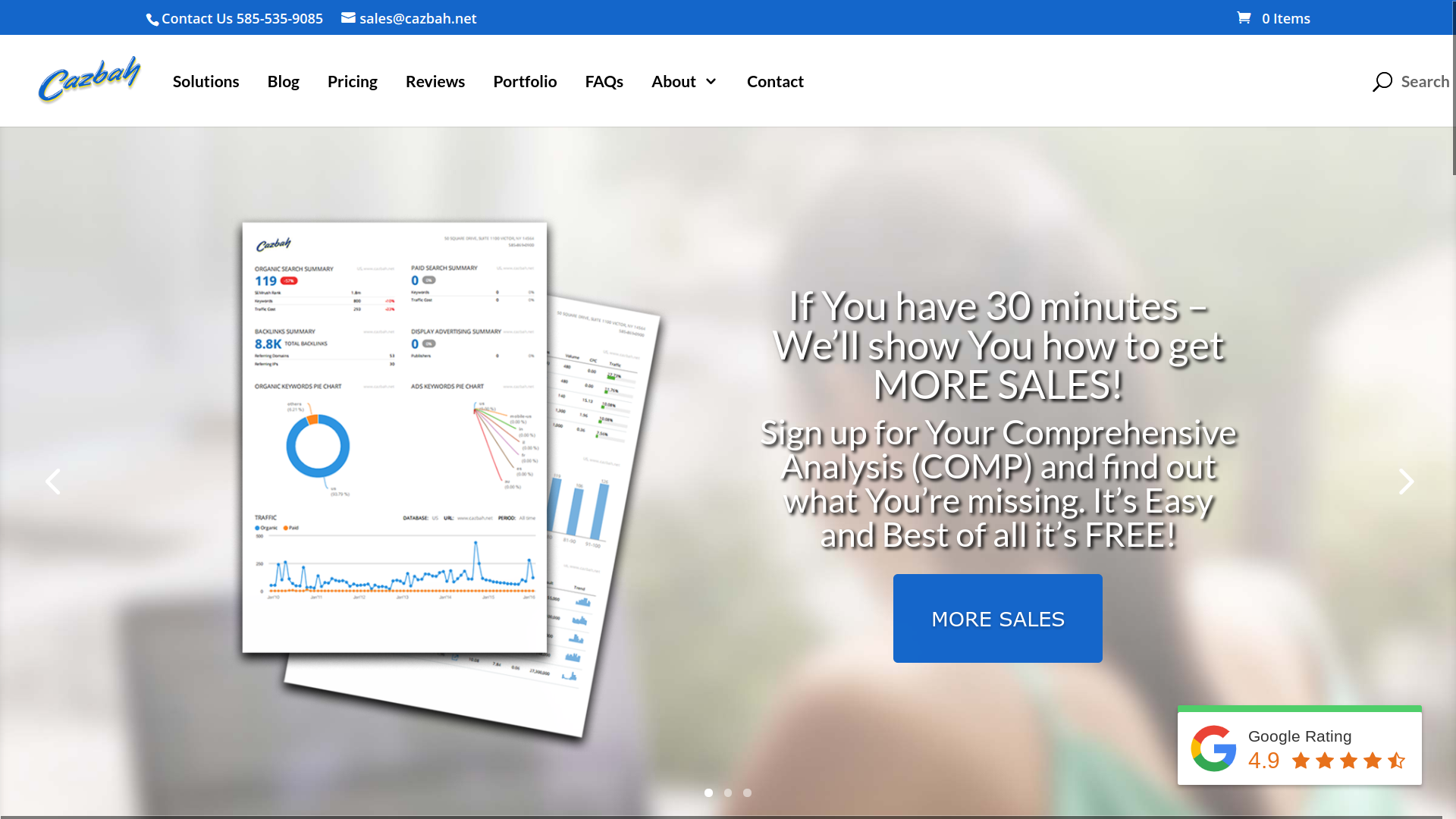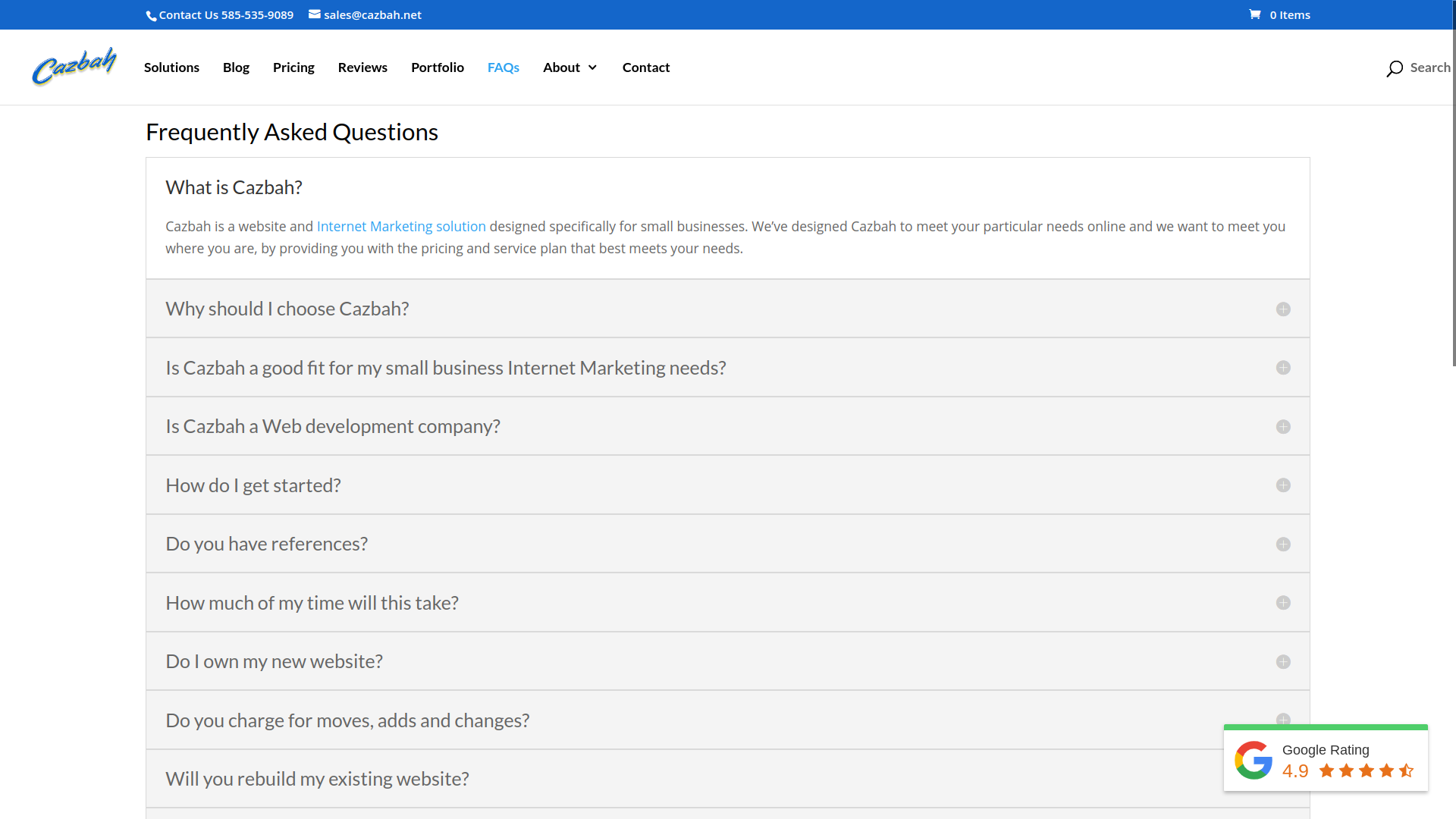
The methods of gaining and converting customers has changed dramatically over the years. Outbound marketing is gone and inbound marketing is the new king.
In other words, pushing your products and services to someone, even if you don’t know they’re looking for at the moment, isn’t effective.
Inbound content marketing focuses on the customer and their individual needs.
The inbound marketing method draws customers to your business based on your produced quality content, to see if you’re a good fit for each other.
Your content is what alerts potential customers that you exist, helps you make a sale, and then keeps the customer long term. Think of your content as the best, personalized salesperson in the business. It never sleeps, doesn’t takes any sick days, and can reach all your customers at once.
The Modern Consumer
Thanks to the accessibility and popularity of the internet and smartphones, buyers have changed how they obtain information and shop online.
The old methods of going into a store and being regaled with the features and benefits of a product by a salesperson has been replaced.
Now, most buyers go online and research what they need to know about something before ordering.
In many ways, this fundamental shift makes the job of salespeople easier. Gone are the days of cold calling and random email blasts.
Now, salespeople can focus their energy on real prospects that are already interested. Salespeople can concentrate their time filling in any gaps in the buyer’s knowledge or suggesting complementary products customers might also be interested in.
But, even if you’re producing content, you may be losing sales. I’ll explain; stay with me.
If you’re not producing quality, inbound content that can be indexed by search engines and found by potential customers, you’re not going to make any money.
Content marketing is a science with necessary boxes you need to check off to get the results you want. This is why your company needs to have relevant content that answers questions, provides insight, and gives information about your products, services, industry topics, and business.
Just like you taught your kids to not talk to strangers, potential buyers searching for a service online will want to research your business first to get to know what you’re all about. If you don’t provide this information, searchers will look elsewhere and give their business to someone else.
Research Is Critical
You need to think about all the questions someone may ask or want answered about your company’s products or services before they’d be willing to buy. What makes your product better? What can you tell them about your business that they may want to know ?
People want proof that your business is what they need. Your content marketing and web presence is what ensures that comfort.
Be critical of what you produce and play devil’s advocate with yourself, arguing the importance and relevance of everything you create. Put yourself in the reader’s shoes and ask yourself tailored questions.
If you can’t easily find answers to those questions, you need to reformulate your content.
It takes time and effort to ensure you have the right information available, but the end result will be well worth the upfront effort.
Thorough content on your website will tell a potential customer:
- What specific product models you offer
- Warranties or guarantees available
- Pricing information
- Payment information
- Shipping information
- Product reviews
- Product comparisons
- Service and return information
- Specific information to your services etc.
Your content needs to be educational and helpful. People aren’t going to read pages of content unless they answer a question or fix a problem. I’m betting you get annoyed when you’re looking for something you can’t find, be it online or in real life. But, when you find that thing, whatever it is, doesn’t it make your day? Viewers should feel that way every time they read your content.
Consistency Is Essential
Content marketing is critical in bringing prospects into your marketing funnel to create brand awareness.
Like the beginning of any new relationship, there’s going to be a lot of questions.
Having a blog or a FAQ section set up on your website is invaluable for addressing numerous, popular topics related to your industry and what you do. You’ll want to establish a regular schedule when you update information, respond to questions and comments, or publish new content.
The more consistent you are in your postings, the more customers will will see you are an industry leader. Posting to a variety of social media sites, as well as your website, will give both potential and current customers ample opportunity to find your information.
When you consistently produce quality content, it builds brand trust, and people will only buy from someone they trust. Those who search under topics that you frequently create posts about, will continually see your company’s name and your helpful advice. Potential customers will begin to associate you with those particular topics and keywords they’re searching for.
Stay specific in what you write about and write about what you know.
Write toward your target audience, using popular industry terms, but also enlighten readers and educate them with more facts, stats, and information they may not be aware of. However, make sure your content is optimized for both your reader and the search engine.
Outreach Effort
In addition to a blog, you can have a newsletter or email service that visitors to your site can opt-in to receive on a regular basis. This gives you the ability to communicate with those who want to be notified of new products or sales, thus keeping them in your sales funnel for future selling opportunities.
Emailing newsletters may be seen as an outbound marketing opportunity, but it’s one that can be far more effective when utilized for those who have shown a definite interest.
While inbound practices should be the main focus, re-inventing and re-purposing outbound marketing methods can still be helpful since there are ways they both can complement each other.
Search Engine Optimization
The importance of good SEO cannot be overstated.
Online purchases start with an internet search, and if your company’s not found in this search, then you lose the opportunity to even try to make a sale.
Having an inbound content marketing strategy plays a key role in helping your SEO efforts. The days of keyword stuffing mediocre content and hoping to rank decently on major search engines are long over.
Many of Google’s algorithm updates over the past couple years have been centered around the importance of quality content.
Google now puts a heavier emphasis on bounce rate when determining rank status on the results pages. This means, webpages that have compelling, inbound content that informs, utilizes SEO techniques, and is optimized for mobile searches, will keep viewers engaged longer, which can ultimately help those pages rank higher.
Return on Investment
A critical difference that can be seen between outbound and inbound marketing, is your ROI.
When calculating your ROI, you need to consider your time and monetary input and gain. Some may say the research and time required for content development is extensive, but it’s truly not any more involved than coming up with a traditional advertising campaign and implementing it.
Website or printed campaign ads can be costly and always come with an expiration date.
However, content creation for your website, blog, and social media sites is semi permanent and will continue to bring new prospects into your marketing funnel long after it’s published.
It Works
The final test of any marketing strategy is how well it works. Using a tool like Google Analytics will help you calculate your ROI, individuale page success, visitor numbers etc.
According to Demand Metric, content marketing costs 62% less than traditional marketing and generates 3x as many leads as traditional marketing methods. Nearly half of people aged 18 to 49 get their news and information online, and this number will only continue to grow as time passes. It’s clear that people are out there on the web searching, so give them something to find.
The better the content is, the more effective it will be.
Only quality content will boost your SEO ranking, increase trust and authority for your brand, and engage visitors enough to convert them into customers. Of course, there are specific techniques that can help make certain aspects of your content marketing efforts more effective.
Essentially, you need to develop a strong inbound content marketing strategy that combines both search engine requirements and reader expectations.
In Conclusion
An inbound content marketing strategy is a necessary component of the sales process at every stage, regardless of how long or short that process may be. If you want to stay competitive in today’s market, you need to have an established presence on the web. Having quality content will literally make the difference between the success or failure of your business.
Want More Info on How to Grow Your Business?
Check out our website and get a FREE comprehensive analysis on why your site is not performing and how to fix it!
Check out our blog page for more useful articles on a variety of topics!



